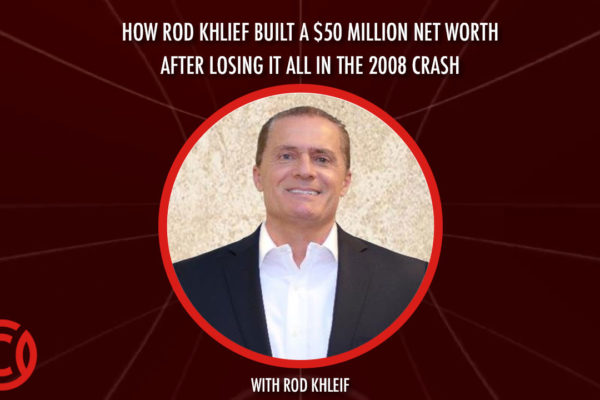We all hear stories of highly lucrative angel and venture capital investments. But without an existing portfolio and a Rolodex full of Silicon Valley contacts it can be hard to identify the right opportunities.
So what are the telltale signs of a founder or company that is destined to succeed? Or the warning signals of one that isn’t? And how do you meet them in the first place?
To find out we spoke to Tristan Pollock who, after successful exits from his two previous companies -- Social Earth and Storefront -- has made the move into the venture capital world.
Tristan is the entrepreneur in residence and venture partner at 500 Startups.
500 Startups is the world’s most active venture firm based in San Francisco with nodes and investments across the globe, with nearly 2,000 investments in their portfolio since starting out six years ago.
In this episode, we talk about Tristan’s successful exits from his two companies, Social Wealth and Storefront; his transition to venture capitalist and advisor to startup businesses; and what green and red flags he looks for when evaluating new investment opportunities.
Bootstrapped vs. venture funded
Tristan has experienced both forms of entrepreneurship. His first successful company, Social Earth, was self-funded. Whereas Storefront, his following venture, was backed by 500 Startups and went through their accelerator program.
There is no one-size-fits-all route. Some founders want to maintain control of their companies and stay true to their vision for the product.
Others feel that there are skills that they need or a network they need to build, which they can only get access to through an incubator or accelerator program.
Identifying early stage startups for investment
With financial projections and limited quantifiable information, it’s more of an art than a science at the early stage. Tristan talks us through the flags he looks for.
Chief among them at this point is to look at the founders and core team. One of the first and most obvious signs is previous experience and past successes.
If a founder has proved that they have what it takes to execute by grinding it out on something they care about, then you can feel more confident about their next venture. Listen in to the interview for more.
Red flags for investors
Tristan relies on pattern recognition to identify warning signs of an inexperienced or untrustworthy founder.
Things like:
- Being very salesy in meetings;
- A combative relationship with their co-founder - perhaps they haven’t been working together very long; or
- A know-it-all character that isn’t easily coachable or is closed off to feedback.
Instead, he would prefer to see a strong sense of empathy from a founder that can empower people and inspire diverse teams.
Tristan has written an article on Silicon Valley etiquette which you can read over here. He has also compiled a list of some of the strangest pitches he has seen, which are certainly red flags.
Investing in startups for the first time
It’s important to start building a network around VCs and founders that you trust to get introductions to potential opportunities. When you’re starting out as an angel you will need to piggyback on other people because your check size is smaller.
You’ll want to get in on opportunities early with founders that have some of the positive signals mentioned above. You may not invest in the first opportunities you are exposed to, but they will give you a valuable learning experience.
In many cases, investing in startups is similar to investing in real estate. You may want to have 25-50 investments in your portfolio to increase your odds of one of them bringing a positive return.
It’s important to appreciate the passion, grit, and resilience that founders need to display in order to create their companies and so fostering a relationship of respect between investors and founders is key.
Connect with Tristan Pollack
MORE EPISODES OF THE CAPITAL GAINS PODCAST:
• How to Acquire One Property That Will Set You Up For Life
• How To Solve the Foreclosure Crisis and Make Massive Real Estate Gains
• 4 Insider Secrets To Attract Eager Buyers For Your Online Business








